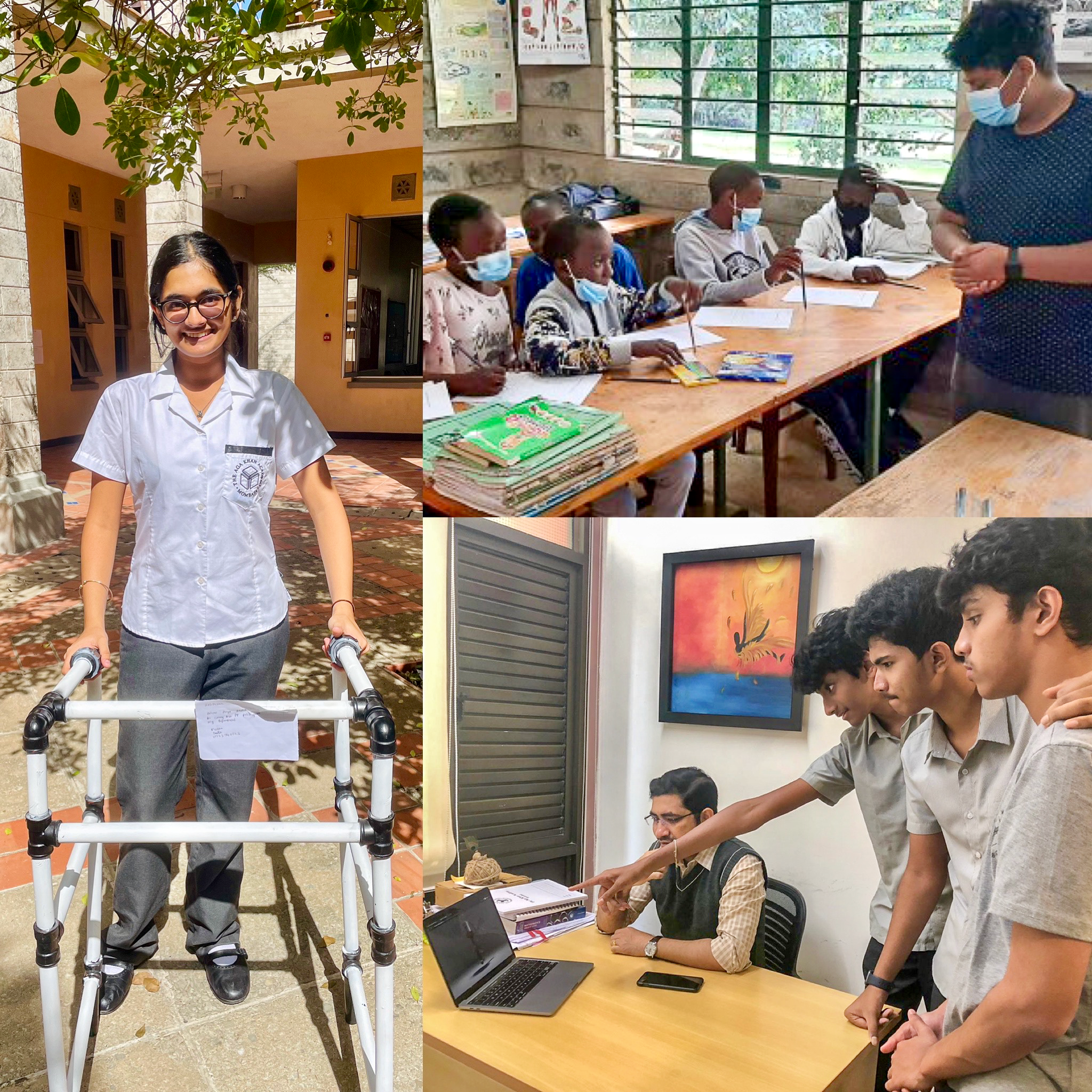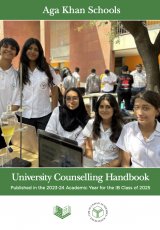Aga Khan Schools students receive IB grants to implement innovative, sustainable projects
As part of this grant, each student will also receive guidance and advice from an expert in the field related to their project. Furthermore, the winners can collaborate with other student finalists or community members to enhance their projects.
Diploma Programme (DP) 1 student Arya Abdul from the Aga Khan Academy Mombasa, one of the recipients of the grant, was elated to receive $1,500 for her project. Entitled “A Step Forward,” Arya’s project focuses on creating affordable and environmentally friendly walkers for the elderly and disabled communities in her home country of Tanzania.
“While visiting Port Reitz – a school for uniquely-abled children – as part of our community service programme at the Academy, I learnt that most of the assistive tools, such as walkers and wheelchairs, were in poor condition and had rust on them,” Arya said.
Using reusable plastic materials to deter rust, Arya envisages using the assistance of local plumbers and other skilled workers to make these affordable walkers, thus also bolstering the livelihoods of local communities. Arya is the Academy’s fourth recipient of the grant, making the Academy in Mombasa the only IB school in Africa to have received this grant every year since its inception in 2019.
“Because of the support of my teachers, peers and this grant, I’m looking forward to being a changemaker,” Arya said. “This project is near to my heart, and I want to work with my local communities so people with disabilities can live a more self-sustaining life and not fear their disability.”
Amal D’cruz, a DP1 student at the Aga Khan Academy, Nairobi, received $5,000 for his project named, “A Vision Through STEM Learning.” Working with orphan children at Nairobi’s Kings Kids Village, as part of the school’s community service initiative, Amal noticed that the children he taught lacked the resources they would need to expand their science, technology, engineering and mathematics (STEM) knowledge.
Determined to close this educational gap, Amal began teaching children aged 11-13 at the orphanage various lessons on STEM through weekly, two-hour sessions. With the grant money, Amal plans to construct a lab at the orphanage with equipment pertaining to STEM learning. In addition, he will purchase four laptops that will have various Microsoft software tools installed for the children to use.
“The main goal of my project is to teach this specific group of children until their graduation,” Amal said. “By being exposed to this technology and this knowledge, they will be able to get financially-stable jobs and be able to keep up with our society that’s constantly developing.”
A team of four DP1 students at the Aga Khan Academy Hyderabad were also thinking about our rapidly changing world, but the impact it can have from a climate and economic perspective.
Devak Charapalle, Karthikey Bangaru, Arun Adam Oshon and Rithik Jampala have seen the repercussions climate extremes have had on farming in India. Severe water crises have become commonplace across the country, with many farmers struggling to maintain their livelihoods because of water scarcity for their crops and poor irrigation systems. This was disheartening to the team, who came together to form “The Gram Project”.
“We want to solve the shortage of water in drought areas,” Devak said. “With 51% of rural communities in India dependent on groundwater reserves and with soaring temperatures, we want to provide an affordable and simple water conservation-centred irrigation system to ensure farmers get the resources they need.”
Through research, the team realised that the most common method of irrigation used by farmers – drip irrigation – is unfeasible for farmers with small holdings because of the cost. With the knowledge they learnt in their classrooms and online resources, the team developed a design for a new sustainable and affordable irrigation system that would save up to 40% of the water in the current irrigation systems, according to Arun.
Unlike existing irrigation systems, the team’s design consists of a series of pipes, turbines and capillary tubes powered by code and artificial intelligence. The design also features motorised systems that ensure water is distributed evenly within a two-metre radius, with the turbines being powered by solar panels. The team aims to use recyclable materials to build these irrigation systems.
“Our project provides a versatile and effective tool for farmers to irrigate their fields, and the system we designed is efficient, affordable and unique,” Karthikeya said. “We’re passionate about the future of agriculture and the development of our technology, and there is massive potential for growth and sustainability in our world. We should start by changing it in our local community.”
With the $8,000 grant the team received, they hope to start manufacturing and field testing their design. However, this is just the beginning for The Gram Project.
“In the future, we hope to partner with existing water conservation non-governmental organisations in India along with farmer associations and, potentially, even the Indian government to mass manufacture our product and make sure it reaches the farmers of India,” Rithik said. “We want to make change and save lives through water because every single drop matters.”
The Aga Khan Schools congratulate the students for receiving these prestigious grants. We wish them the best of luck as they collaborate with specialists in their areas of focus to enhance the quality of life of their communities. We are also appreciative of the continued support provided to the students by their dedicated teachers and parents.





